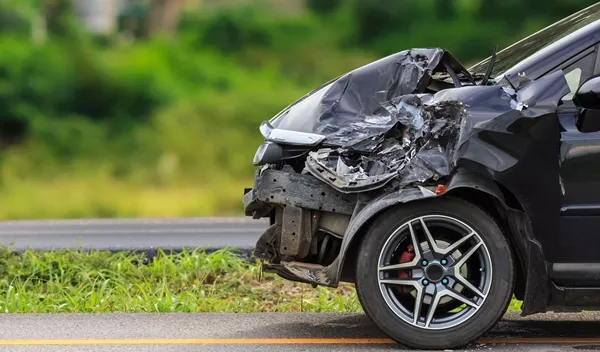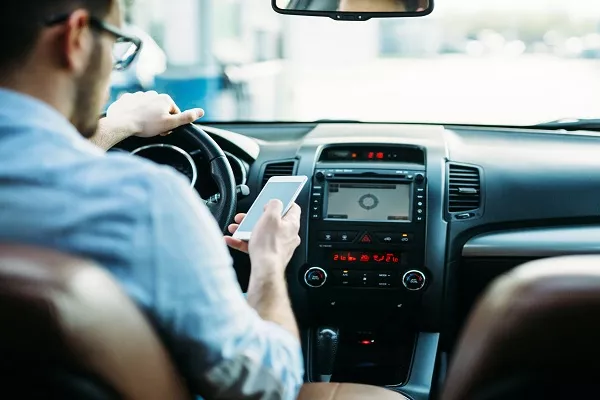Trauma refers to actual or possible disturbance brought about by accidents or any other upsetting incident you may have experienced. A person sustaining injuries from a particularly bad occurrence may suffer from both physical and emotional trauma.
Car accidents are among situations that can induce trauma in a person. At some point, you may remember the feelings and emotions associated with the incident, resulting in difficulties going about your daily life.
Depending on your personality and ability to cope, the initial shock may die down as the days go by, or it can return after some time, triggered by the sight or sound of similar events. Trauma can turn into post-traumatic stress if it isn’t addressed promptly.

Major traffic accidents can cause serious trauma
It is important to know that experiencing symptoms of trauma is not a sign of weakness. While everyone reacts differently to trauma, the emotional support that you get from yourself and other people can help you recover.
Here are some tips from Philkotse.com on how to handle trauma, especially after a particularly bad roadside accident.
1. Give yourself time to cope
As much as you observed safe driving, there are circumstances that are still beyond your control, no matter how many times you play the incident in your head.
Give yourself time to heal and come to terms with the situation; blaming yourself only adds to the stress that you are feeling. As it is with physical injuries, emotional wounds take time to heal.

It takes time to fully recover from an accident, whether physically or mentally
2. Talk to relatives or friends
You don’t need to suffer silently which will only add to your mental anguish and pain. Support from family or friends is what you need during this time. Tell them about what you feel, narrate your experiences and how you are coping so that they can help you process your emotions.
>>> Read more: Car accidents: Not panic and do these 12 steps to get over.
3. Resume your daily activity
If you did not sustain any physical injuries, try to resume your usual activities, such as go back to your work or other routines you may have had before the accident. This serves to take your mind off any negative thoughts that can come up in the wake of a bad experience.
It might be challenging at first, but remember that it is also part of your healing. Stay active and preoccupied, to deprive your mind of opportunities to dwell on negative thoughts.

Preoccupy both body and mind by resuming regular activities
Generally, people who have survived accidents encounter flashbacks about the incident occasionally.
There’s no use in debating with yourself whether or not there was anything you could have done differently since the experience has already come to pass, but the best thing to do is to learn from the incident to avoid similar instances in the future.
4. Learn defensive driving
Driving or simply riding along as a passenger may be understandably hard after the accident, and if you were the one behind the wheel, you can take this as an opportunity to look at what needs to be improved in your driving.
You might need to stop fidgeting with your mobile phone, be more alert, or reduce the number of things that distract you such as overly loud music. Don't drive if you are experiencing fatigue, or if you are under the influence of alcohol or narcotics.
5. Reclaim your confidence
With a road accident, it’s not just the vehicle that gets damaged; for some people, even their confidence takes a hit. If you don’t feel like taking the driver’s seat in the meantime, start with being a passenger to overcome your fear.
Sitting behind the driver can be useful if you want to have more or less the same perspective without actually having to take the wheel. The longer you wait to drive again, the harder it might be to overcome your anxieties.
6. Start slowly
Once you feel that you are ready to drive again, start slow. You can begin by practicing in open spaces away from public roads, to reacquaint yourself with driving. Ask a friend or a family member to ride with you to help you overcome your anxiety.
If you are confident with driving in light traffic, you can eventually try going to busier areas. There are driving schools that can help motorists to overcome their trauma after an accident, as well as arming them with defensive driving skills.

Texting while driving can cause serious road accidents
If your budget permits invest in a more reliable car. Do research on the safety ratings of the prospective cars among your options. Ask your dealer about any outstanding recalls on a particular model that could affect your safety.
Even if you are purchasing a second-hand vehicle, you can assess its safety and roadworthiness by getting a mechanic to check the car’s engine, exteriors, and interiors.
>>> Must read: Tips to stay calm behind the wheel and avoid road rage.
7. Seek professional help
If you are still struggling despite your efforts to deal with trauma, seeking help from a doctor is advisable. Your physician may be able to prescribe medicines to manage your anxiety, or simply talking to a mental health professional can help you work through with your fears.

If you are still struggling with trauma, seek professional help
Recent posts
- 4 must-do things to avoid accidents when driving through a pass Jul 26, 2019
- A complete guide to avoid pedestrian accidents Aug 16, 2022
- What is accidental death insurance and what does it cover? Aug 16, 2022
- Post Car Accident Signs Everyone Should Be Aware Of Nov 08, 2022
- 9 things to do in the event of a car accident Aug 16, 2022












